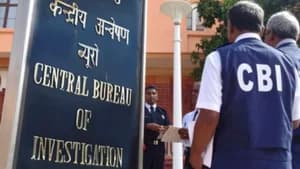The Supreme Court of India has decided to suo motu take up the 2015 writ petition (WP(c) No.600/2015) filed by the late Professor Shamnad Basheer, seeking the formation of a permanent body to conduct the Common Law Admission Test (CLAT) for National Law Universities (NLUs). Despite Professor Basheer's passing in 2019, the court chose to continue with his plea, issuing notices to the Union Government, Bar Council of India (BCI), and the NLUs.
Read also: Supreme Court Issues Notice in Six Appeals Challenging Acquittals in 1984 Anti-Sikh Riots Cases
A bench comprising Justice BR Gavai and Justice AG Masih addressed this issue while hearing petitions challenging the CLAT-UG 2025 results, where several errors in question papers were noted. The bench criticized the "casual manner" of question framing by the Consortium of National Law Universities.
"At the outset, we must express our anguish at the casual manner in which the Consortium has been framing the questions for the CLAT examination which involves the career aspirations of lakhs of students in the country," the Court observed.
Read also: Supreme Court Issues Notice in Six Appeals Challenging Acquittals in 1984 Anti-Sikh Riots Cases
During the hearing, the bench questioned the logic behind allowing different NLUs to conduct CLAT on a rotation basis instead of having a permanent body like NEET or JEE.
"Why don't you have a permanent mechanism? Why can't there be a permanent mechanism like NEET or JEE?" observed Justice Gavai.
Senior Advocate Gopal Sankaranarayanan, representing the petitioners, pointed out that the Supreme Court had previously directed the Union Government in 2018 to explore the possibility of establishing a permanent CLAT body. However, neither the Union nor the BCI had taken any action on this directive.
Read also: Only 14 of 221 High Court Judges Appointed Since November 2022 Related to Judges: Supreme Court Data
The 2018 Supreme Court judgment had criticized the lack of consistency in CLAT's administration, highlighting irregularities, including flawed question papers, poor exam management, and excessive fees charged to candidates without accountability. It called for a committee to examine the possibility of a permanent body.
"The idea of entrusting the task of monitoring the conduct of the entire examination to different Law Universities every year also needs to be re-visited," the 2018 judgment had stated.
In his petition, Prof. Basheer had emphasized that despite CLAT's growing popularity, it continued to suffer from institutional failures, including poorly designed question papers, incorrect answers, wrongful seat allotments, delays, and a lack of transparency. He advocated for a "robust, structured, and institutionalized mechanism" to conduct CLAT, ensuring fairness and reducing errors.
Regarding the CLAT-UG 2025, the Supreme Court noted multiple mistakes and directed the Consortium to award marks for certain correct answers and delete some incorrect questions.















